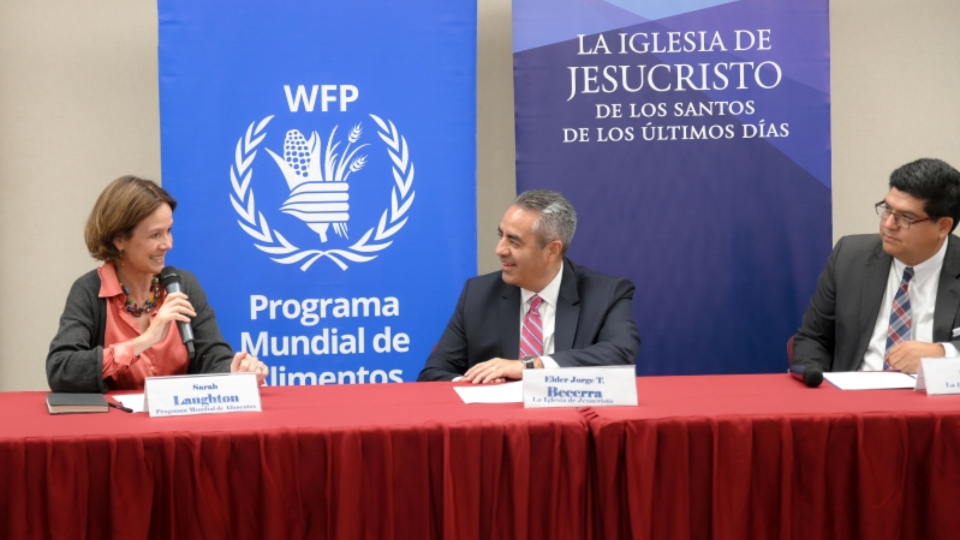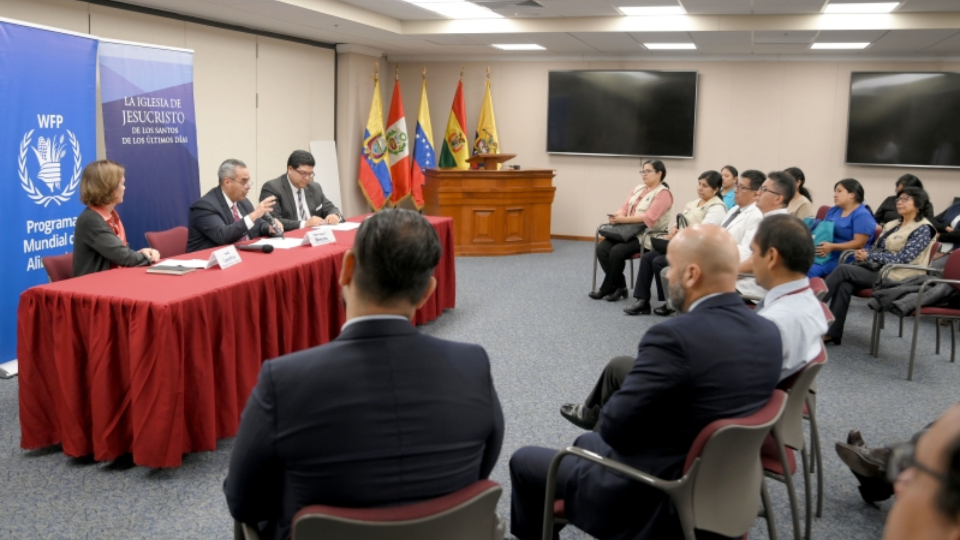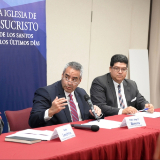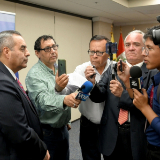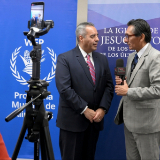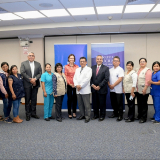The Church of Jesus Christ of Latter-day Saints is collaborating with the World Food Programme in Peru to support efforts to reduce anemia in children under five years of age by 5% in the Ventanilla district of the Callao region. These efforts will be carried out through community action and territorial management.
Elder Jorge T. Becerra of the South America Northwest Area Presidency presented the donation to Sarah Laughton, the representative of the United Nations World Food Programme in Peru.
| Children under three years old will receive help to combat anemia in the Ventanilla district, located in the Callao region of Peru, thanks to a donation made by The Church of Jesus Christ of Latter-day Saints on April 24, 2024. 2024 by Intellectual Reserve, Inc. All rights reserved. | 1 / 6 |
The project’s primary objective is to strengthen the capacities of local governments to promote effective management of child nutrition. Additionally, it aims to enhance public health services to combat anemia in children, thereby improving the quality of care and promoting better nutrition within the community and families.
Chronic malnutrition in children under age five increased nationwide in Peru, reaching 11.5% in 2023, according to the National Institute of Statistics and Informatics Demographic and Family Health Survey. Anemia affects 43.1% of children under three and, in the constitutional province of Callao, it rises to 37.8%.
Between 2011 and 2015, the World Food Programme in Peru implemented a project to reduce anemia in seven Ventanilla human settlements, reduing aneemia by 23%, benefiting 1,233 children.
About Humanitarian Services of the Church of Jesus Christ
The Church’s 2023 caring summary shows that the faith’s efforts to care for people in need included more than $1.3 billion in expenditures, 6.2 million hours volunteered and 4,119 humanitarian projects in 191 countries and territories.
The humanitarian efforts of The Church of Jesus Christ of Latter-day Saints relieve suffering, foster self-reliance and provide opportunities for service. The Church follows the call of Jesus Christ to feed the hungry and care for people in need.
This humanitarian outreach is made possible by the generous donations and volunteerism of Latter-day Saints and friends of the faith. The Church gives assistance without regard to race, religious affiliation or nationality. Aid is based on the core principles of personal responsibility, community support, self-reliance and sustainability.
